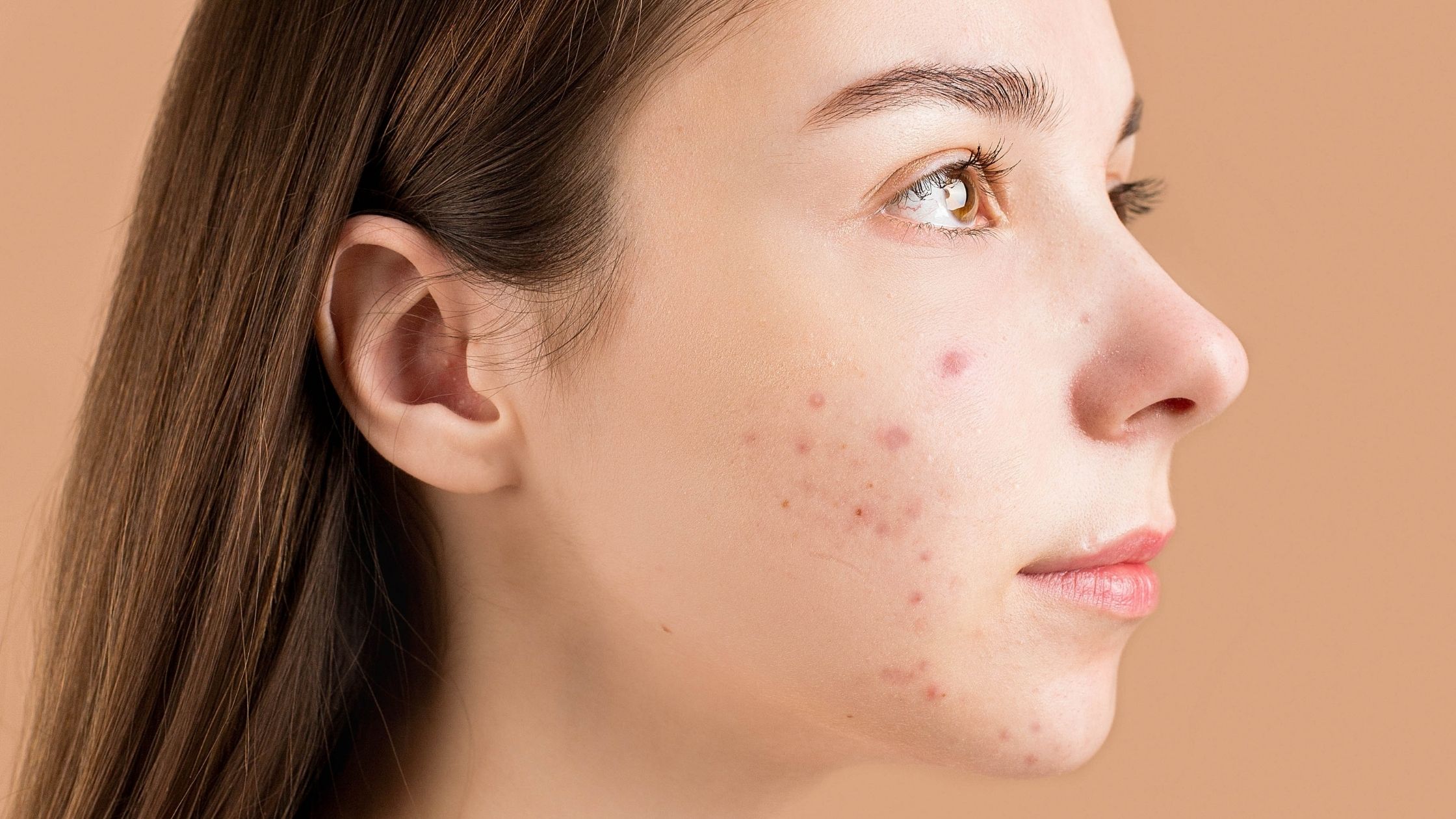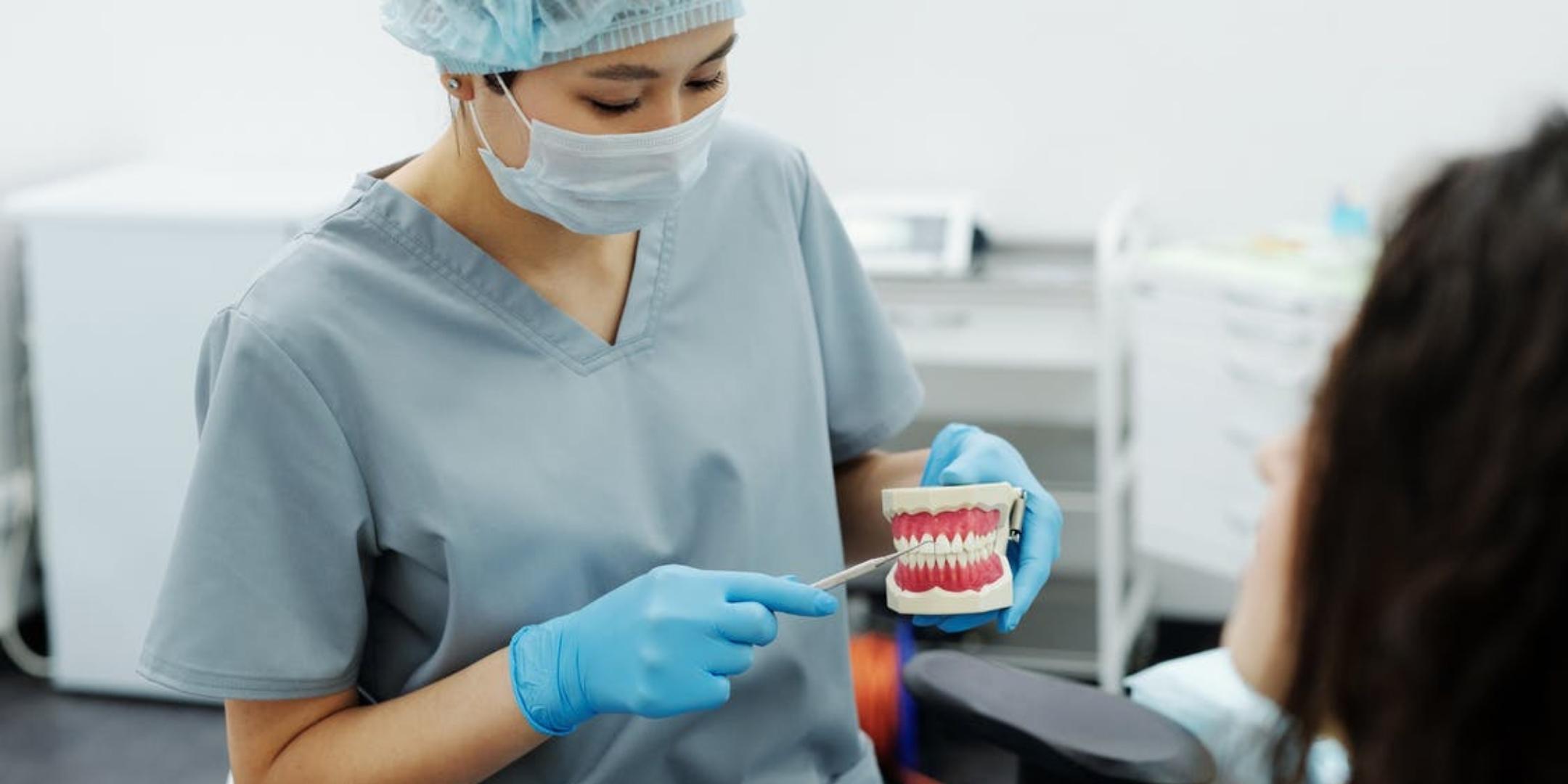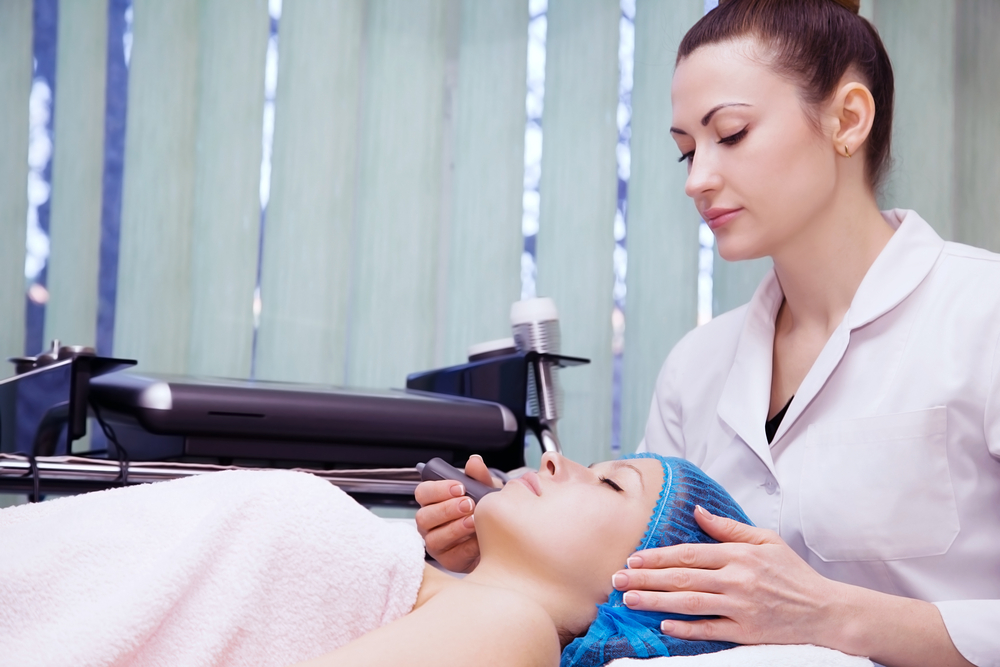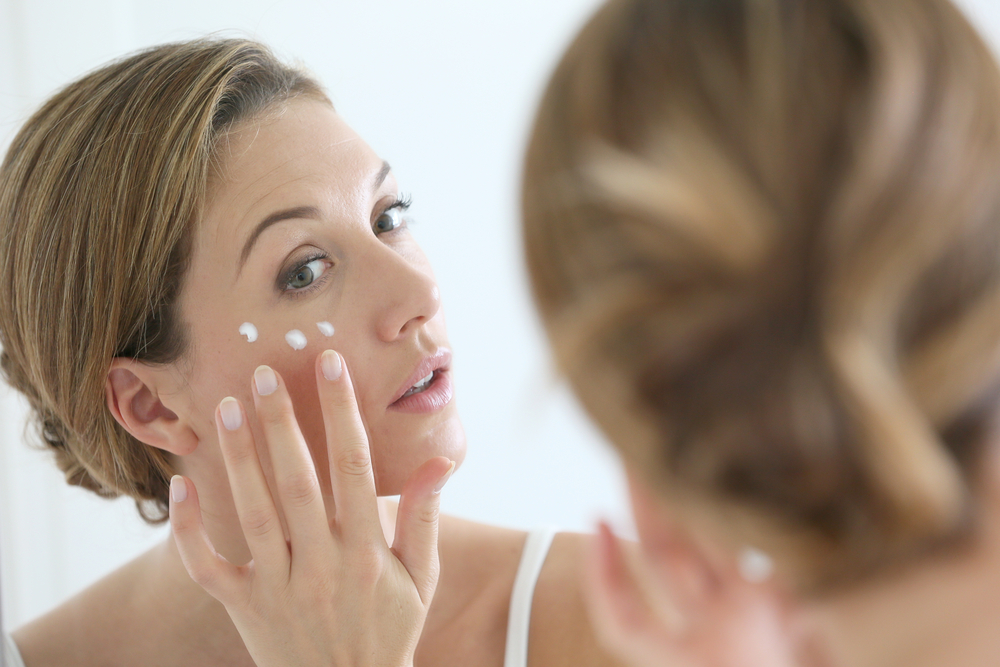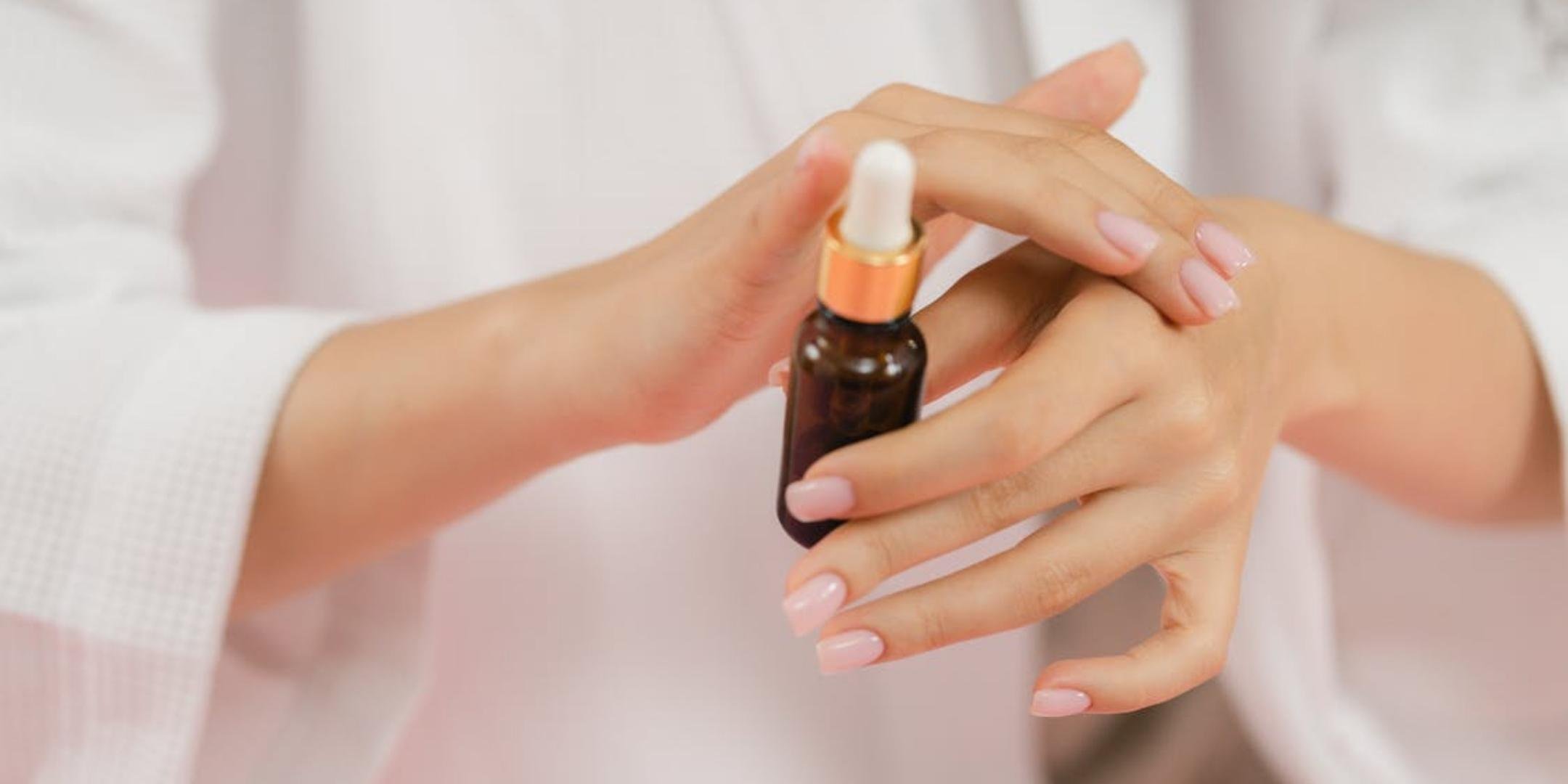Even if you don’t do anything to cure a pimple, you can usually expect it to recover within a few days. Acne nodules are distinct from other acne lesions. Nodules are painful, hard sores that develop deep beneath the skin and linger for weeks or months.
Nodular acne is not only uncomfortable, but it can also impact your confidence and self-esteem. Nodular acne can cause lifelong scarring if not treated promptly.
Since nodular acne affects deeper layers of the skin, it’s important to consult a dermatologist to ensure you’re receiving appropriate treatment.
But first, let’s talk about nodular acne, why it occurs, the treatment options available, and if your acne is indeed nodular.
What Is Nodular Acne And What Causes It?
Nodular acne, also known as nodulocystic acne, is a severe form of acne that erupts as large, inflamed, hard lumps. These usually occur in the deep layers of your skin and are painful to touch. The acne nodules occur wherever there is overproduction of oil glands, such as on the face, neck, jawline, chest, or back.
Clogged pores typically cause all kinds of acne. Whiteheads, blackheads or both will accompany mild forms of acne. In nodular acne, the bacteria, Propionibacterium acnes (P. acnes) gets trapped inside the clogged pore resulting in an infection that travels through the deeper layers of the skin, causing inflammation and swelling.
What distinguishes nodular acne from other forms is that it is linked to the presence of excessive androgen hormones. Increased amounts of androgen hormones can trigger the overproduction of sebum, thus increasing the risk of flare-ups.
Nodular acne does not affect everyone and is believed to be hereditary. Adult women may notice nodule flare-ups shortly before menstruation when the oil glands overproduce sebum due to an increase in androgen.
Treatment Options For Nodular Acne
Because nodular acne affects your skin’s deeper layers, over-the-counter medications and emollients don’t effectively treat it. Hence, it requires more intensive therapy. Typically, dermatologists recommend oral medication along with topical treatments.
Fortunately, dermatologists recommend treatments that effectively work to combat nodular acne.
Oral Medications
- Spironolactone binds to testosterone receptors and prevents testosterone from stimulating oil in the sebaceous glands, thus resulting in fewer flare-ups. It helps shrink your pores.
- Antibiotics have anti-inflammatory properties and also kill propionibacterium acnes, the bacteria that cause nodular acne. Accutane and Retinol also work in reducing sebaceous gland activity, thus reducing flare-ups.
- Oral Contraceptive/Birth Control Pills: Increased oil production in the skin can be caused by hormonal changes, and androgens (male hormones) increase sebum production. Clogged pores and nodular acne might occur from an increase in these hormones. Hormone production is regulated with the use of birth control pills.
Topical Antibiotics
Prescription-strength topical creams applied directly to the nodule help reduce inflammation and P. acnes. Tretinoin creams and gels come in various concentrations and can be administered directly to the affected area. Salicylic acid and benzoyl peroxide help slough off the dead skin, reduce inflammatory cells, oil, clogging, and kill P. acnes bacteria.
In-Office Treatments
In-office treatments and interventions also aid with inflammation, nodule healing, and scarring caused by the nodules. They help improve the appearance of acne scars. Depending on the scarring and discoloration severity, certain procedures will be beneficial when combined with prescription medications.
- Acne drainage and extraction
- Chemical peels
- Intralesional steroids
- Microneedling
- Laser resurfacing
- Light therapy
- Dermabrasion
Home Remedies
Home remedies may also help reduce nodular acne symptoms.
- Apple Cider Vinegar: Many people use apple cider vinegar because of its antibacterial properties. It is believed that apple cider vinegar targets acne-causing bacteria and helps the skin in healing. You must dilute apple cider vinegar in warm water and apply it directly to the affected area.
- Olive Oil: Some people believe that cleaning the skin with olive oil reduces acne. It is believed the olive oil combines with excess grease on the skin, helping lift it out of the pores. It is considered to prevent clogging and reduce breakouts. Olive oil is believed to have antioxidant properties, thus preventing acne.
How Can You Prevent Nodular Acne?
You cannot completely prevent or avoid the eruption of acne, including nodular acne, but it is possible to control the acne triggers and breakouts by taking the following measures:
- Wash your face two times a day with a gentle cleanser and lukewarm water.
- Wash your face after heavy sweating or post-workout.
- Wash your hands before applying make-up or cosmetics.
- Wash off any make-up before going to bed.
- Avoid touching your face frequently or popping pimples, as it will only cause more irritation and worsen the problem. It also increases the risk of scarring.
- Avoid harsh or alcohol-based cleansers and greasy or oily skin products.
- Smoking cessation.
- Wash your hair regularly, i.e., twice a week or alternate days for oily hair.
- Use sunscreen every day.
See Dermatologist
Nodular acne has the potential to cause both physical and emotional damage. It also tends to cause scarring and discoloration of the skin. If you feel you have nodular acne, talk to your dermatologist to get rid of these with proper treatment options.
If you have recurrent nodular acne, it’s crucial to contact a dermatologist. To keep the nodules from reappearing, you may require extra preventative treatment.





